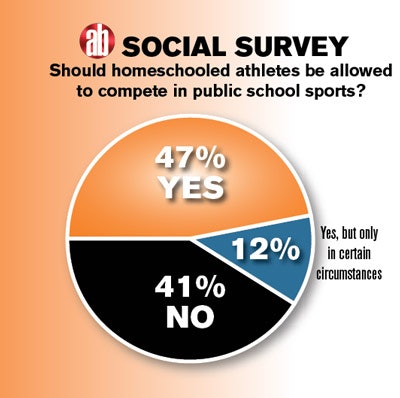It was a big news week for high school athletes in Virginia.
On Wednesday, the Virginia High School League sanctioned the participation of transgender athletes at the state's 313 high schools. On Thursday, the Virginia Senate Education and Health Committee shot down this year's version of the Tim Tebow bill, which would have allowed homeschoolers to participate in public school athletics.
Regarding the Tebow Bill, according to The Virginian-Pilot, in a 9-6 party line vote, the Democrat-run panel voted against House Bill 63, arguing that it would create a double-standard for homeschool students by allowing them to participate in public school athletics without meeting the same standards that public school students must.
"Everyone should get a chance to play at a higher level than just rec and select club teams," says Grace Dunlevy, a 13-year-old homeschooled student.
While the homeschoolers were denied, transgender students in Virginia have been given the green light to play.
According to the Richmond Times-Dispatch, the VHSL's executive committee, made up of school principals and athletic directors from around the state, passed the decision in a 27-0 vote.
From the Times-Dispatch:
A person is considered transgender when he or she identifies with a gender other than his or her birth sex. This includes changes in dress or appearance.
But to comply with the league’s policy, the athlete will have to make physiological changes, too.
The athlete must have undergone sex reassignment, including surgical removal of the external sex organs and the ovaries or testes. He or she must undergo hormonal therapy such that it minimizes gender-related advantages in sports competition.
If the student stops taking hormonal therapy, he or she will be required to participate in the sport of his or her birth gender.
“It is a reality that there are transgender students who are interested in participating in athletics,” said Ken Tilley, executive director of the VHSL. “It’s something we recognize we need to be of service to our schools and our students.”
According to the VHSL, 18 states have similar legislation. AB took an in-depth look at this issue back in May of 2010.





































